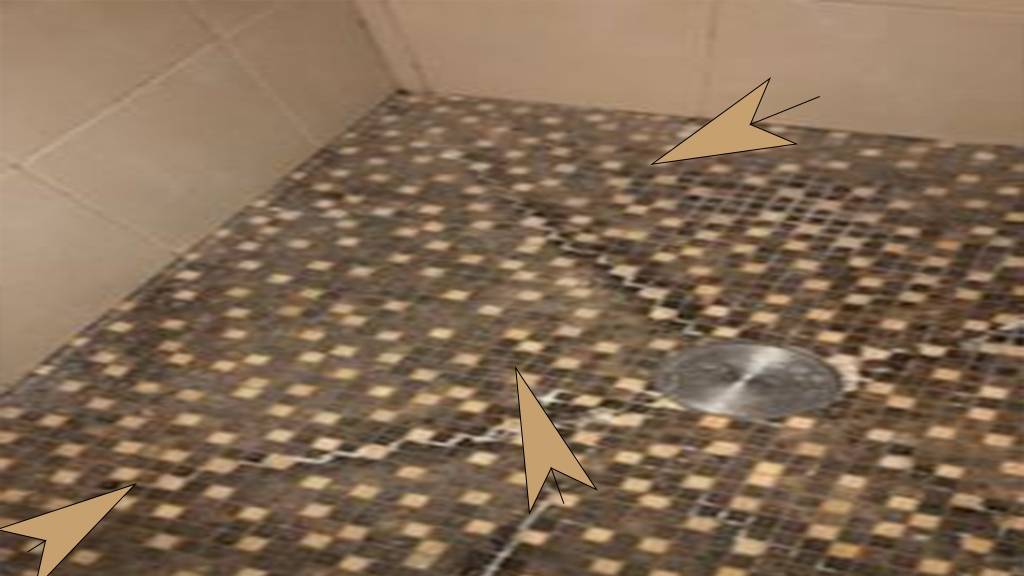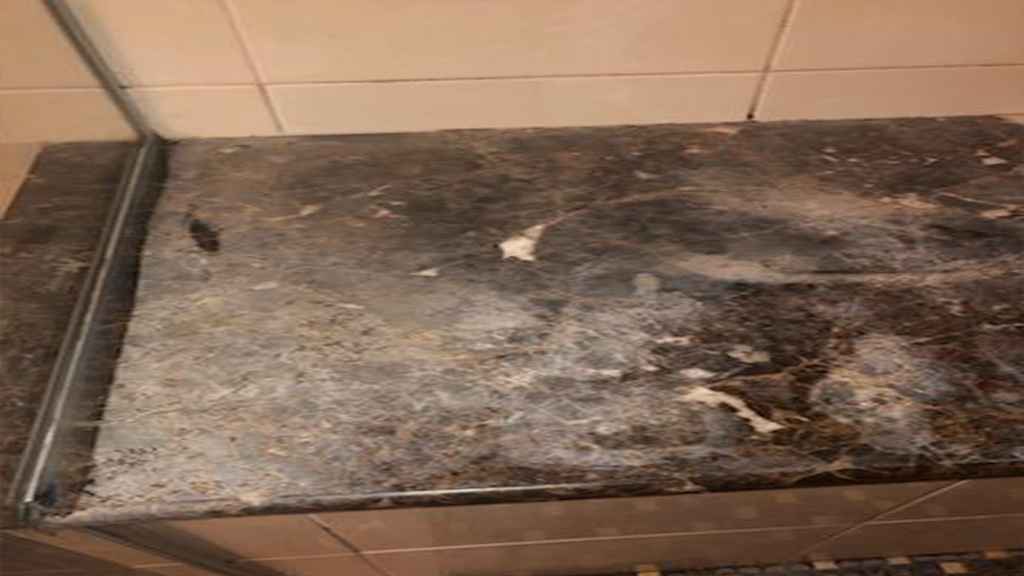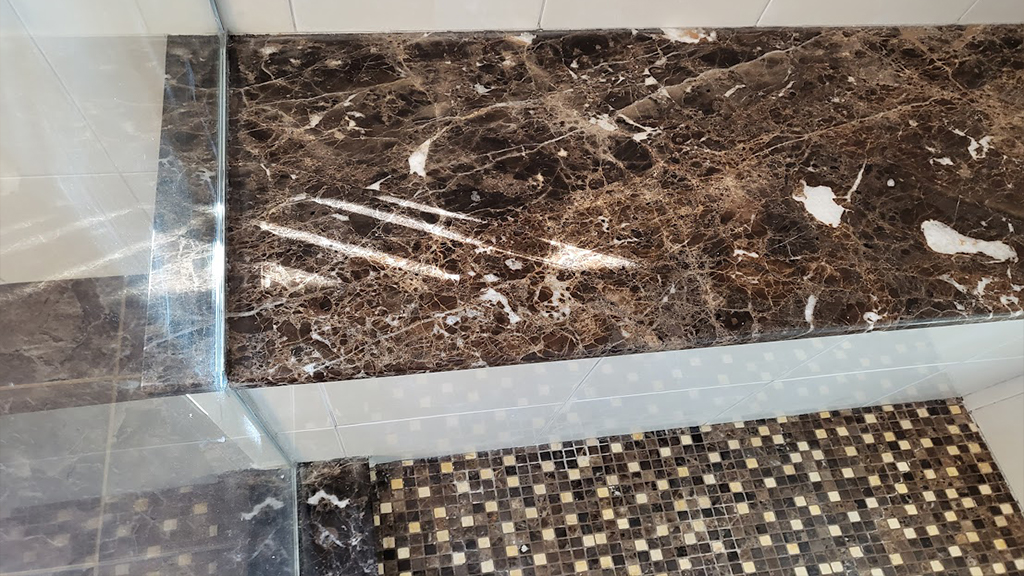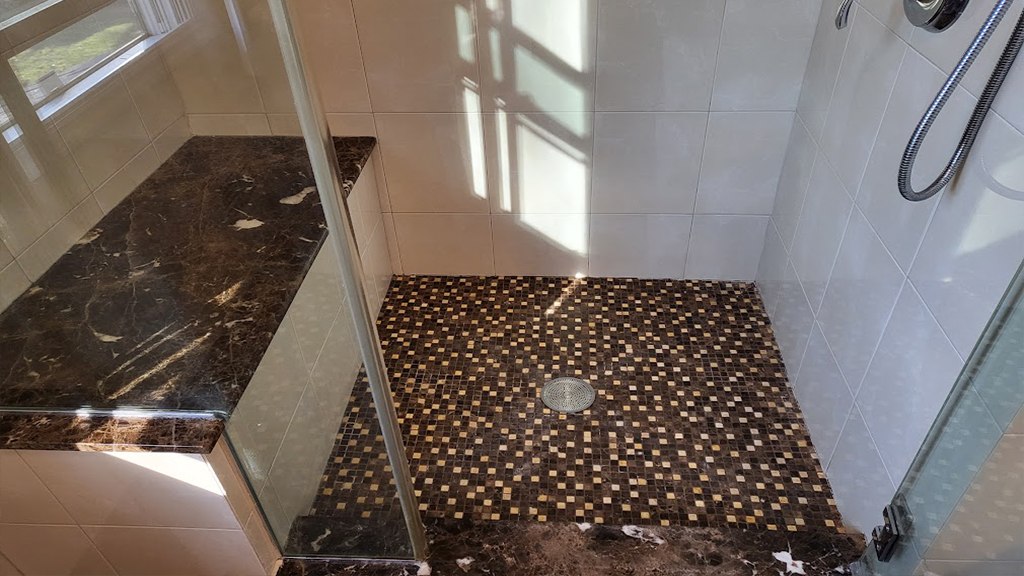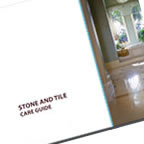Etch Marks and Efflorescence Removed In Marble Shower
- Home Case Studies Etch Marks and Efflorescence Removed In Marble Shower
Bath & Body Products, Everyday Cleaners, Even Common Food and Beverages Will Etch Natural Stone and Marble
So often we are called to restore stone surfaces in people’s homes where they are their own worst enemy. Innocently, they don’t realize that common bath and body products, everyday household cleaners, and even common foods and beverages can cause the damage. Can’t tell you how many times we arrive only to see the marble surface look like it went through a war zone!
Why Have it if You Don’t Take Care of it?
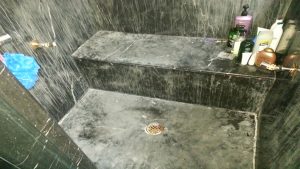
Just like a fancy car, a yacht of distinction or fine clothing, beautiful stone surfaces must have special care to protect and preserve them too. Like everything mentioned above if you are lucky enough to enjoy these things, extra care must be given to maintain them. People spend gobs of money on detailing their toys and treasures. They also treat their fine clothing differently than everyday garments. But in the same light, people invest and surround themselves in stately marble, granite and other stone elements in their homes, and neglect them constantly!
This Robbinsville Bathroom Has a Double Whammy, Etching and Efflorescence
While this case study speaks about etching, efflorescence is also a stone problem that appears often in a bathroom area, usually in the shower, and is a problem this homeowner had us address. Efflorescence usually occurs when there is a water issue in a bathroom, commonly when there is a drain or wall issue. So while we corrected the efflorescence for them, we cautioned that it may return, and if it does there may be structural issues that need to be addressed (as is the case.) To learn more about how we dealt with their efflorescence and what was done, and now needs to be done, click here.)
Back To The Etching, How Does Marble and Stone Get Etched?
Actually, pretty easily. Stone is very sensitive to high pH solutions. Many things, as soon as they come in contact with the stone surface and will cause a mark that won’t “clean off” with wiping. The solution affects the stone surface, and it must be ground to remove the mark and restore the stone surface to its original brilliance and beauty.
Etching is Common In Bathrooms And Vanity Areas
Any horizontal surface in a bathroom where bath and body products sit is ripe for developing etch marks. So around the sink, where makeup is applied, on a shower shelf or a shower bench surface (as is the case in this Robbinsville home,) you will see etching.
Etching is Common In Entertaining—Serving Areas And In The Kitchen
We commonly see marks on counter tops, tables, bars and coffee stations areas. In essence, anywhere where there is food, food prep, serving or entertaining, and exactly where people cook, gather, raise a glass or break bread in the home is where we see etching.
Looking sideways at the stone you will see full rings or partial rings in the shape of a glass. For instance, a glass of wine or even a bottle of wine where it drips down the outside of the bottle or the stemware will etch marble or stone. All it takes is to set the glass on the stone counter, table or surface. If the wine drips down the outside of the glass, down the stem and settles on the base of the stem you will see the etch mark. Any acidic liquid if spilled down the outside of the serving vessel can cause it.
Another common place to find etching is in the kitchen. Some cooks keep a collage of oils and vinegars out near the stove for ease of use. (In fact, Wendy Being a good cook has quite a collection of common oils and vinegars right by the stove.) All it takes is some over exuberance in using a vinegar so the vinegar drips down the spout to the stone. Or, it’s typical to see etching near the french press, espresso or latte machine, or even where the teapot steeps’ or the coffee pot sits.
Beware—Using Vinegar To Clean Natural Stone Is Disastrous
As has been discussed elsewhere on this site and in case studies, vinegar used by someone to clean stone will instantly cause etching to the stone. Case in point, years ago a successful female executive client called us after she took a Friday off to do some spring cleaning. Preferring to use natural cleaning agents, she got out a gallon of vinegar and went to town on multiple surfaces, including her master bathroom. She wiped every marble surface down with vinegar. She wiped her vanity, backsplash, walk in shower, the walls, her sunken tub deck and sides, absolutely every flat and vertical surface in the room. And just like that she etched every bit of it, to the tune of over two thousand dollars worth of damage.
While not making an example out of her, we did assure her we could fix it. And after we explained what needed to be done, she gladly opened her checkbook and thanked us that we could fix it for her.
So How Can Etching Be Avoided or Minimized, First Off Don’t Reach Under The Sink For Any Old Thing To Clean Stone
Common household cleaners will etch. You must be diligent and use only stone friendly cleaning products. Typically stone friendly products have low ph ingredients. You can find them in the cleaning section of grocery stores, hardware stores, box stores and such but you have to read the labels.
If you prefer you can order many different stone care cleaning products from our stone care supplier. They have cleaners for both stone care professionals and for homeowners too, in their retail section of their web site. We recommend a daily cleaner, perhaps a shower cleaner that addresses soap scum buildup (for the shower walls and floor,) and a mold and mildew product. To Order Stone Friendly Cleaning Products Click Here
What Else Can Homeowners Do To Protect Their Stone While Living With It
Good common sense and simple steps will go a long way to protect your stone from mishaps and life. For instance if you have your vinegars and oils out on the counter by the stove, place them and store them on a tray so they don’t sit on the stone surface itself.
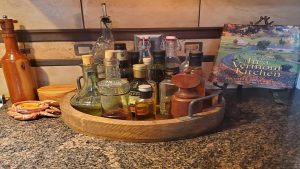
Do the same in the shower, or rinse the bottles off so the product does not lay on the shelf or shower seat. Spray a daily stone cleaner on the wall the flat and vertical surfaces, get in the habit of wiping them down after showering, or using a spray and squeegee to clean the stone surface.



